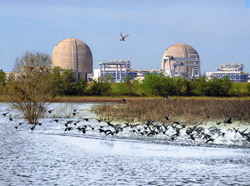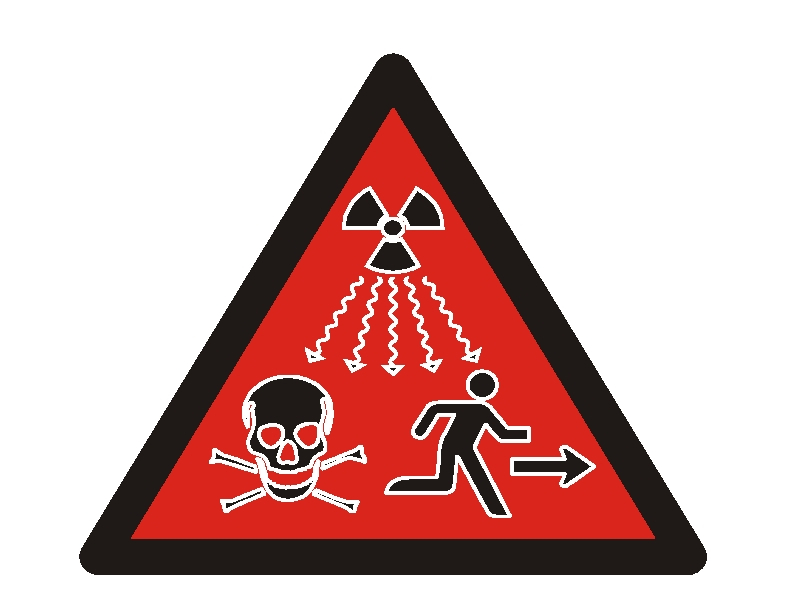"NRG Might Exit Nuclear Project"
 The Wall Street Journal reports that NRG Energy, based in New Jersey, may pull the plug on its involvement in the South Texas Project nuclear power plant's proposal to build two additional reactors of the General Electric-Hitachi "Advanced Boiling Water Reactor" (ABWR) design at the site which already hosts two operating reactors (pictured at the left). What makes this news all the more remarkable is the fact that the U.S. Department of Energy had previously selected the South Texas Project proposal as one of the top four applications in the entire country for new reactor loan guarantees. As reported by Greg Harman in a three part series entitled "Nukes of Hazard," as well as additional coverage in the San Antonio Current and the San Antonio Express News, the South Texas Project new reactor proposal has been coming apart at the seams for several months now. DOE seems all too ready to risk many billions in taxpayer funding on new reactors resting on financial -- not to mention safety -- foundations built on sand.
The Wall Street Journal reports that NRG Energy, based in New Jersey, may pull the plug on its involvement in the South Texas Project nuclear power plant's proposal to build two additional reactors of the General Electric-Hitachi "Advanced Boiling Water Reactor" (ABWR) design at the site which already hosts two operating reactors (pictured at the left). What makes this news all the more remarkable is the fact that the U.S. Department of Energy had previously selected the South Texas Project proposal as one of the top four applications in the entire country for new reactor loan guarantees. As reported by Greg Harman in a three part series entitled "Nukes of Hazard," as well as additional coverage in the San Antonio Current and the San Antonio Express News, the South Texas Project new reactor proposal has been coming apart at the seams for several months now. DOE seems all too ready to risk many billions in taxpayer funding on new reactors resting on financial -- not to mention safety -- foundations built on sand.





 February 1, 2010
February 1, 2010

